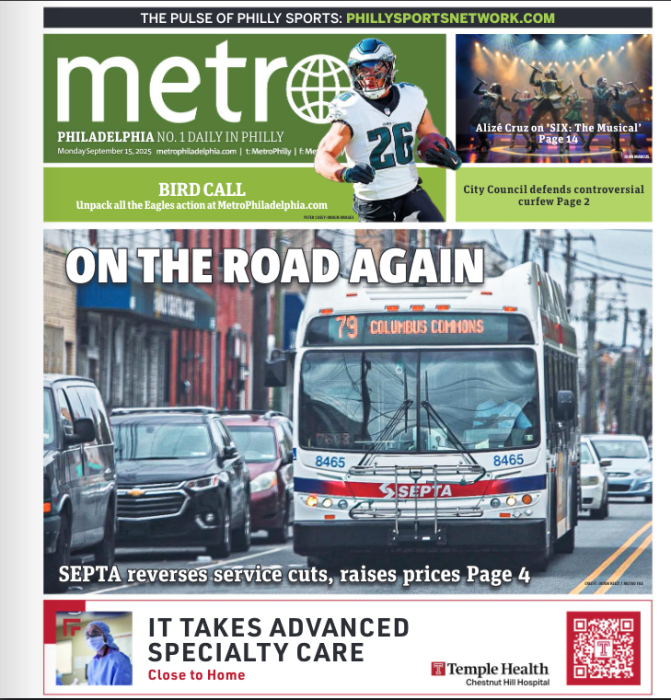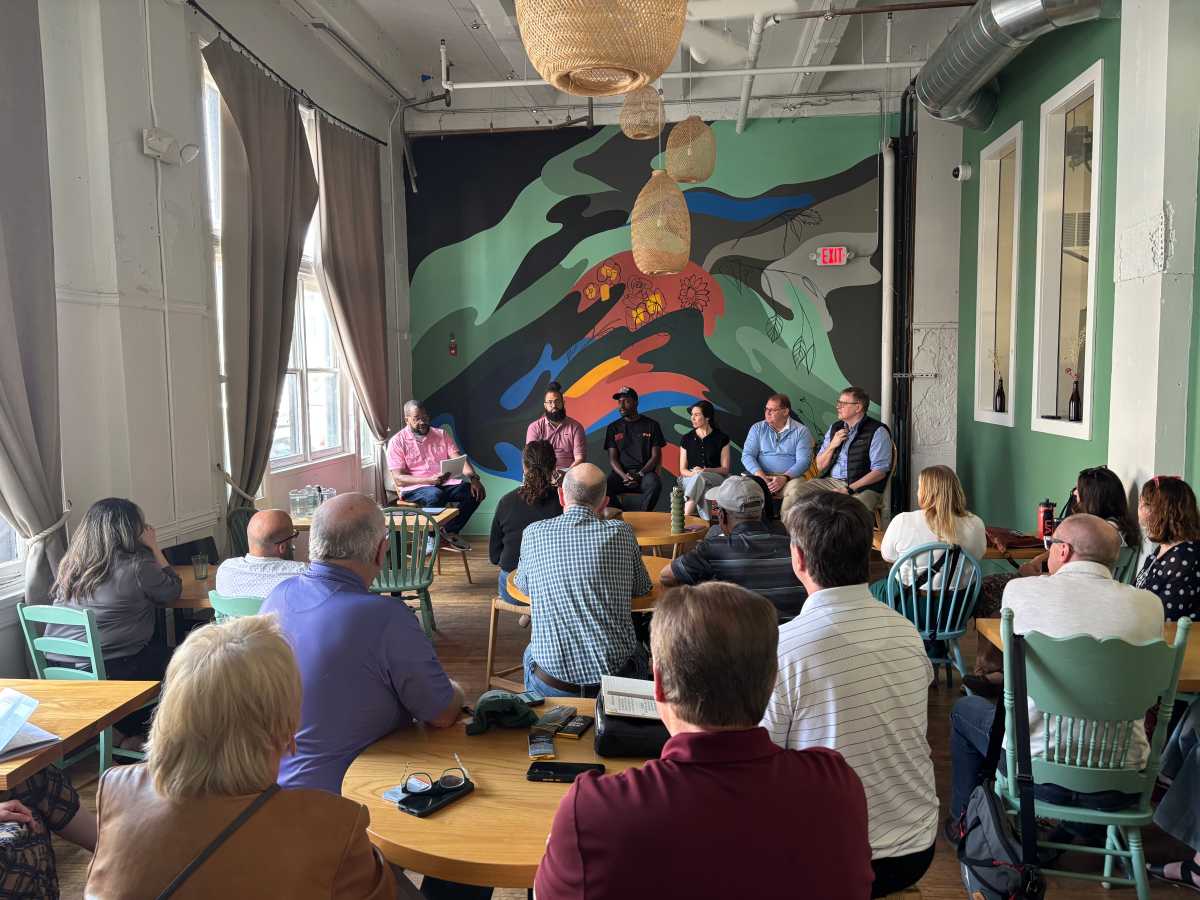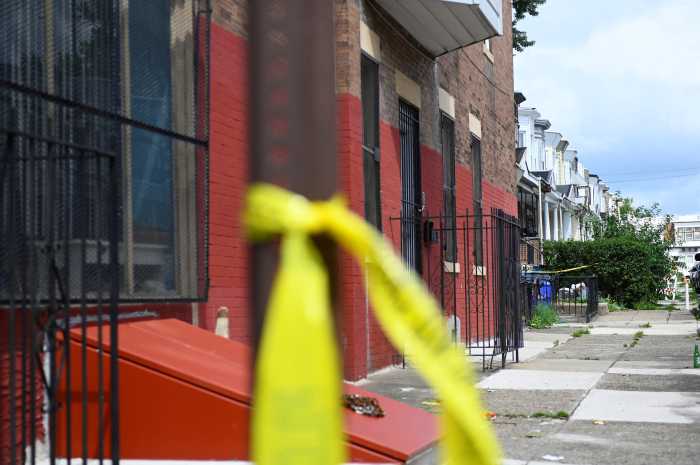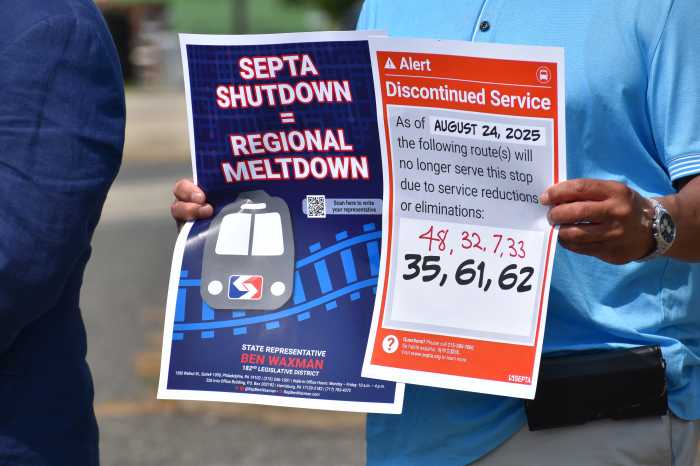On Thursday morning at Triple Bottom Brewing, before any beer was poured or any patrons were served, a few dozen employers, community leaders, and advocates of fair chance employment gathered to discuss how they are working to make work more accessible to the formerly incarcerated.
Dr. James Peterson, the host of “Evening WURDS” on Philly’s WURD, started the panel discussion by proclaiming “this is called organizing.”
The host site, Triple Bottom Brewing has been a fair chance employer since their inception in September 2019. Triple Bottom founder Tess Hart explained that being a fair chance employer “means that we are a radically inclusive employer hiring folks who are justice impacted or impacted by housing and security.” Last year, the brewery launched a cohort-based apprenticeship program. It is a “16-week paid training program for folks who are justice-impacted or housing insecure to secure meaningful jobs in the hospitality industry,” Hart added.
One of the panelists discussing their experience re-entering the workforce was Nathaniel Bunday, 48, from West Philadelphia.
“I was incarcerated for 29-and-a-half years. I’ve been home now for two and it’s been a little journey coming home because I had to learn so much,” Bunday explained.
The biggest change Bunday faced was the advancements in technology that have taken place over the last thirty years — things like tapping a debit card, using a GPS, and adapting to the internet. The first job that Bunday had after his incarceration was with Baker Industries, a nonprofit workforce development program serving hard-to-employ adults since 1980.

Bunday participated in a 12-week jobs program with Baker that taught him skills applicable for a number of employers.
“When I first started, I was on putty. Putty is like (sticky) stuff for kids, that you’d put in a tin can and all that. Then I moved to Tastykake, boxing Tastykakes up and shipping them out. I did all of the jobs at Baker. I didn’t stay stagnant in one spot. They want you to learn everything.”
Bunday now works as a ceramic presser for the high-end tableware studio Felt+Fat, which is based in Kensington.
“The reason Baker exists overall is to help people that are barred from the workforce, get back into full-time employment,” said Nicholas Watson, president of Baker Industries. “What we found is that people who are incarcerated for a long period of time often are on some sort of parole or probation that requires them to get a job… but because of their criminal record they are barred from getting a job.”
According to a report done by the Bureau of Justice Statistics of more than 50,000 people released from federal prisons in 2010, 33% found no employment over four years post-release from incarceration. “Those who are unable to maintain employment experience a recidivism rate of 52% over three years, whereas their peers who maintain employment for one year post-release experienced a recidivism rate of just 16%,” according to the U.S. Chamber of Commerce.
Maurice “Q” Jones, 44, is a formerly incarcerated individual from Germantown who now works as a consultant on re-entry employment. His focus is on the value added by hiring people like himself. “You have some loyal employees, who are dependable and accountable, and want to see their worth grow with the company,” Q said.
Both Tess Hart of Triple Bottom and Q boasted about higher than industry standard employee retention rates when fair chance employment practices are implemented. Data from Total Wine & More demonstrates that turnover rates are at least 12% lower for employees with criminal records.
“There’s five (people) every hour that come home from prison to Philadelphia everyday… folks need help,” expressed Q. The primary hurdle that people face when attempting to re-enter the workforce is the stigma surrounding their criminal record. Philadelphia Lawyers for Social Equity estimates that “20% of all Philadelphians have a criminal record. In low income, high arrest, heavily minority communities, the estimate approaches 60 percent. That suggests there are over 240,000 low-income Philadelphians with criminal records.”
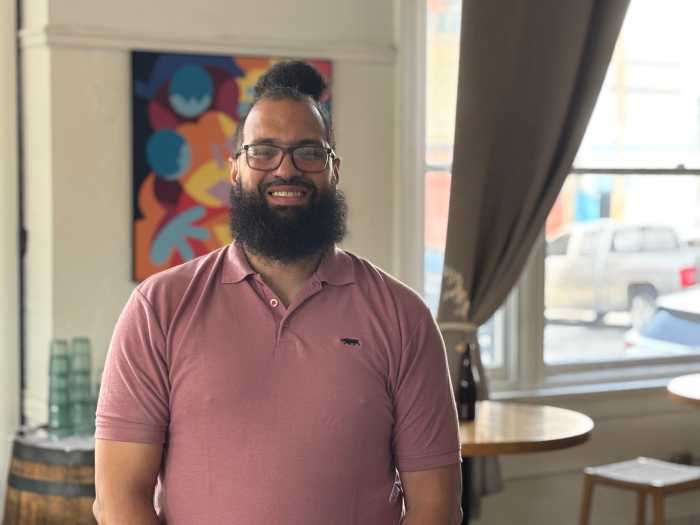
A large swath of the Philadelphia workforce faces the uphill battle of needing to explain away their past and prove that they are worthy of employment. “A lot of people who are formerly incarcerated will find that they are asked (about it) in a job interview, so we spend a lot of time in our mock interviews talking about how you talk about incarceration,” explains Nicholas Watson.
In Philadelphia, it is illegal for employers to ask about criminal backgrounds during the job application process under the Fair Chance Hiring Law. Breaches of the law are handled by the Philadelphia Commission on Human Relations which has a three-step process for filing complaints.
Still, with all of these safeguards, the unemployment rate for people who have been incarcerated is significantly higher than the general population’s unemployment rate. Nonetheless, Thursday’s panel at Triple Bottom Brewery showed that there are companies throughout Philadelphia that are working hard to be inclusive to people from all walks of life.
